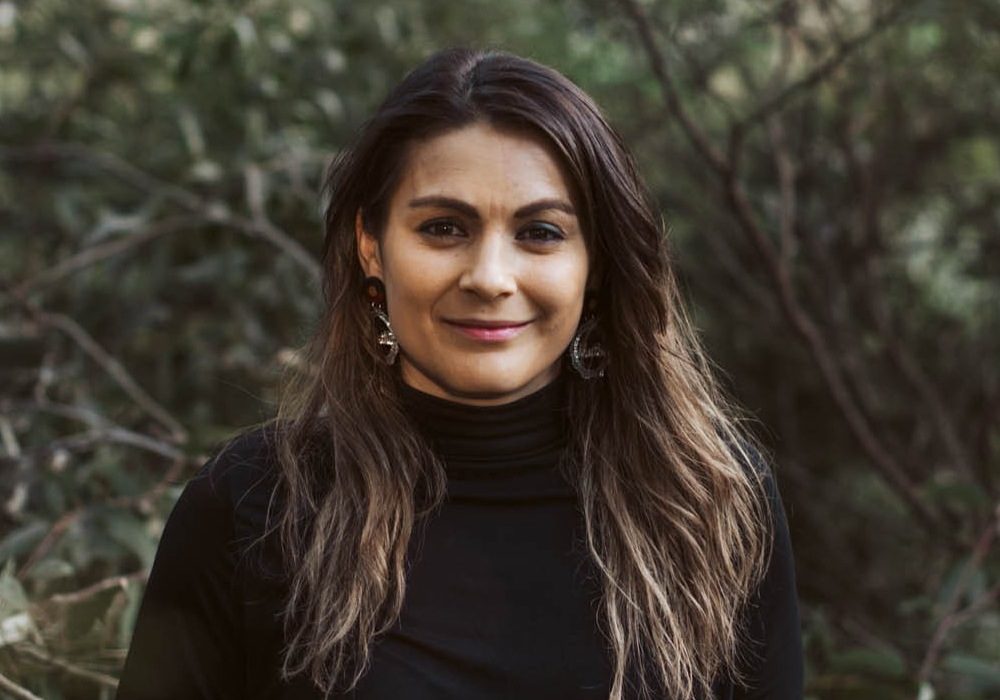Jacara Egan remembers clearly what it felt like to be the only Aboriginal woman in her team. Now, she’s working to build culturally safe spaces to keep the next generation of Aboriginal and Torres Strait Islander women and young women in sports.
While in university, Jacara Egan was dominating as a softball player. A Muthi Muthi/ Gunditjmara woman, she represented South Australia in both the U16 and U19 teams as well as won a U19 National Championship.
It was around this time that Egan recalls a distinct moment when she became especially aware of her status as ‘the only Aboriginal woman’ on her sports team.
‘While I was supported quite well by my family and community, there were often spaces where I was like “I’m the only one here”,’ Egan says, adding that along with this realisation comes the fear of exhaustion and the need to fit in, while asking yourself where is best to seek support.
‘It wasn’t until another Aboriginal woman joined our team when I was playing for South Australia that I kind of let the mask go and took that breath in and went “Oh now this is deadly having someone else like me here”,’ she says.

After that, Egan’s family and her fellow Aboriginal teammate’s family would often connect and support each other with rides to tournaments or practices.
There was a sense of community and support that emerged, similar to what Egan had experienced growing up in a rural area, on the banks of the Dunghala River in Mildura.
‘Sport was one of the biggest things in that society,’ she says, adding that she was able to try so many different types of sport, including volleyball, cricket and softball – her great love.
But even if Egan hadn’t landed on her passion for softball as a kid, she’s positive that she’d still attribute involvement in sport as a way to nurture confidence and a mastery of her own self and her own body as a young woman.
Following her softball career, Egan continued to grace the sporting community through various leadership roles, advocating for First Nations rights and wellbeing along the way.
Currently, Egan coaches women at the AFL and VFLW level. She’s also a mental health social worker, working as National Manager of First Nations Healing and Wellbeing with Headspace.
‘I’ve got a deeply ingrained stubbornness,’ she jokes. ‘If I love something and want to do something, I’m aware of the barriers that may be there but I’ll do everything in my power to [get around that].’
‘To be honest, I wasn’t aware as a young person that as a young woman, my options were limited.’
Reflecting back as an adult, however, Egan can see the structural barriers that are present for women in sport and notes that there were many women who did ‘an amazing amount of work’ so that she could participate in sport at the level that she has done.
‘A lot of our young women drop out of sport at about 14 years old now – it’s something which is really sad, Egan says, considering. ‘We know the benefits of sport in leadership and skill development.’
‘There’s just so much benefit from having young women and women across all levels of your club or levels of sport.’
Determined to shift the dial, Egan is working to create culturally safe environments to increase First Nations women’s participation in sport as athletes and coaches. She also wants non-Indigenous people to gain access and grow from First Nations knowledge and ways of being.
Egan has been selected by the Office for Women in Sport and Recreation as a Change Our Game Ambassador to use the advocacy platform for this critical step forwards. She stands alongside seven other inspiring women in the Change Our Game movement who are raising awareness on key issues in women’s sport.
‘It’s about Aboriginal women and young women having that equal opportunity and space to safely come in, stay in and add opportunity in sport – not just on the fi eld but really looking at more broadly decolonising some of these spaces,’ says Egan.
‘There’s just so much benefit from having young women and women across all levels of your club or levels of sport.’
Change Our Game Ambassadors are using their platforms to help drive change and raise awareness on key issues and barriers for women in sport. Learn more through @ChangeOurGame on socials or at changeourgame.vic.gov.au
This article was written by Brianna Boecker for Women’s Agenda. Read more:
womensagenda.come.au
This article is from the 51st edition of Reconciliation News. Read the rest of the issue.



